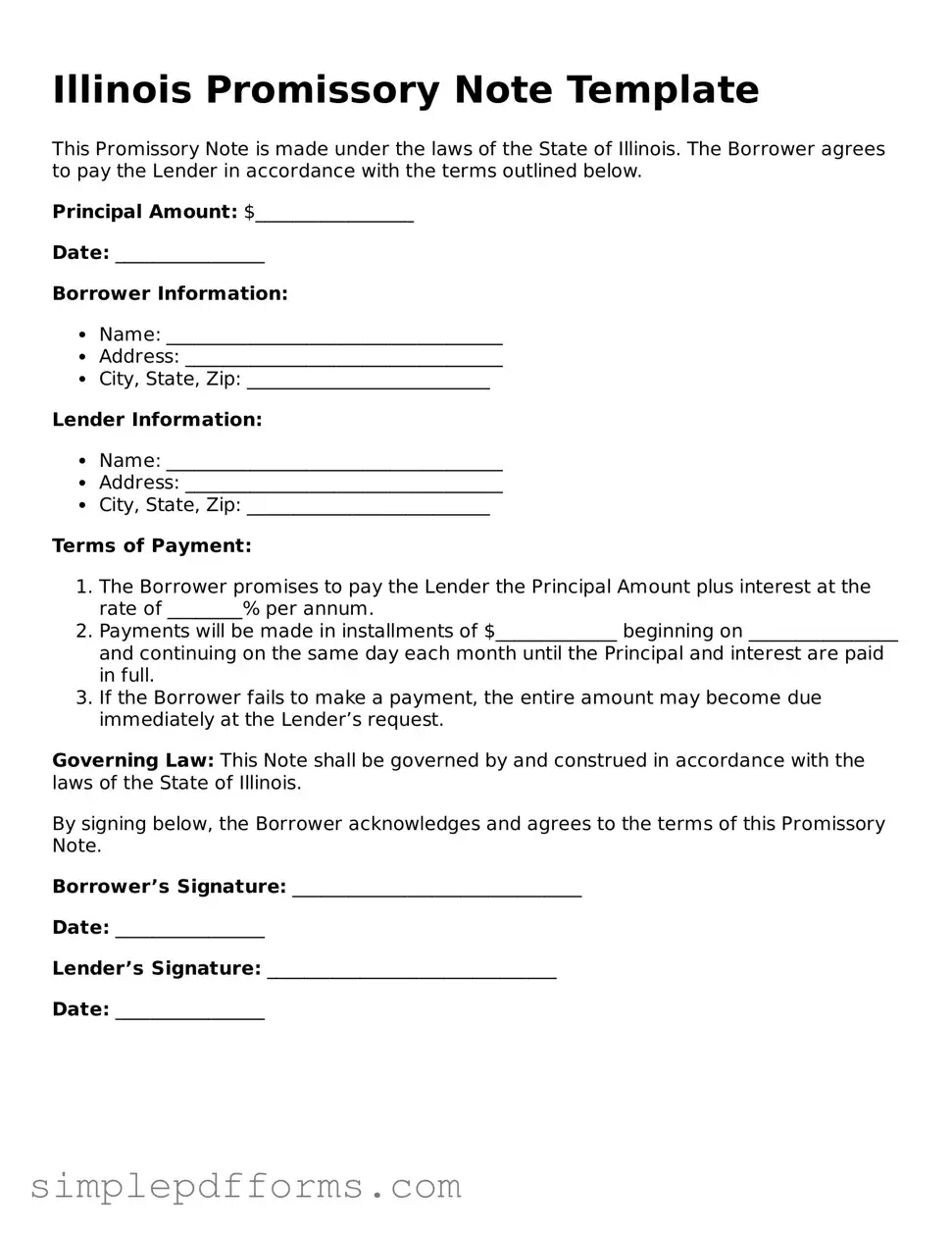Attorney-Verified Promissory Note Document for Illinois State
A Promissory Note is a written promise to pay a specified amount of money to a designated person or entity at a defined future date or on demand. In Illinois, this legal document serves as a critical tool for individuals and businesses alike, outlining the terms of a loan agreement. Understanding its components and proper usage can help ensure that both lenders and borrowers are protected in their financial transactions.
Open Promissory Note Editor Now

Attorney-Verified Promissory Note Document for Illinois State
Open Promissory Note Editor Now

Open Promissory Note Editor Now
or
Get Promissory Note PDF Form
Your form is waiting for completion
Complete Promissory Note online in minutes with ease.